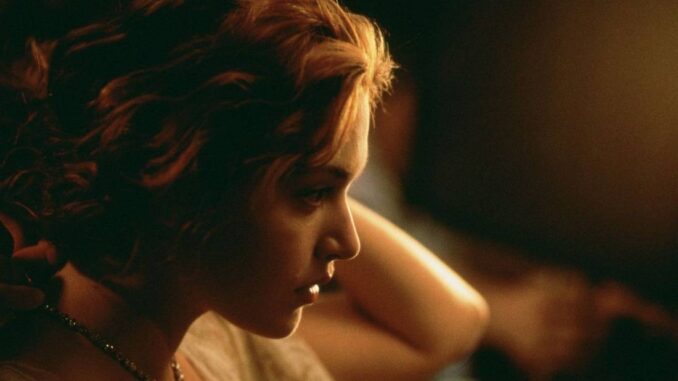
The Iceberg and the Echo: Kate Winslet Opens Up About Her Titanic Experience
The name Titanic conjures not just the majestic, doomed ship, but a cinematic colossus, a love story etched into the global consciousness. At its heart, a young woman named Rose DeWitt Bukater, brought to vivid, defiant life by a then-21-year-old Kate Winslet. For many, the film was a three-hour spectacle; for Winslet, it was an experience that carved an indelible mark, a crucible from which she emerged both celebrated and scarred. Her occasional, measured revelations about this period are not mere anecdotes, but windows into the profound and often brutal reality of inhabiting an icon, illuminating the true cost of an overnight legend.
Winslet’s "opening up" often begins with the immediate, visceral memory of the production itself: a gruelling, Herculean task of unprecedented scale. She speaks of the bone-deep chill that permeated every fibre of her being, a constant companion on a set where the water, though heated to some degree for the actors, still leached warmth from sodden costumes and endless takes. It wasn't merely uncomfortable; it was a physical ordeal bordering on torture, a struggle against hypothermia and sheer exhaustion that imprinted itself on her very cells. "There was a lot of cold water," she'd say, almost laughingly, years later, but the brevity belies the reality of shivering fits, of trying to deliver lines with chattering teeth, of the relentless battle against an environment designed to simulate utter catastrophe. This was no Hollywood facade; it was an endurance test that demanded a profound commitment to the role, blurring the lines between the character's desperation and the actor's physical limits.
Yet, the waters of the Atlantic were not the only depths she plumbed. Winslet has often delved into the psychological toll of portraying Rose, a character who evolves from a stifled debutante to a resilient survivor in the face of unimaginable horror. The emotional weight of the historical tragedy, combined with the intense romantic arc, demanded an emotional vulnerability that was constantly on display. Imagine sustaining that level of terror, grief, and nascent love, day in and day out, for months. "I remember thinking, 'If I don't give this everything, I'm going to regret it forever,'" she once reflected, a sentiment that speaks to the immense pressure and responsibility she felt towards the role and the real lives it represented. This immersion was not without consequence, leaving an imprint on her psyche that required time and distance to process, to disentangle herself from the character's extraordinary journey.
But the most significant, and perhaps most challenging, aspect of her Titanic experience began not on set, but in its wake. The film’s unprecedented success launched Winslet into a stratosphere of fame few ever reach, and fewer still are prepared for. Her "opening up" frequently touches on the suffocating embrace of global recognition, the feeling of being forever tied to "that girl from Titanic." The relentless media scrutiny, the loss of anonymity, the burden of expectation – these were the unforeseen icebergs that struck her post-production. She spoke of struggling to find roles that would allow her to shed the ghost of Rose, to prove her versatility and depth as an actress beyond the epic romance. It was a period of intense self-doubt and a desperate fight to reclaim her artistic identity, a battle she bravely waged by seeking out smaller, independent films that offered challenging roles rather than chasing the blockbuster sequel. This struggle, often hidden beneath the glamour of awards season, was perhaps the most profound part of her Titanic journey – a testament to her resilience and her refusal to be defined solely by one monumental achievement.
In recent years, Winslet's reflections have taken on a softer, more nuanced tone, marked by the wisdom of retrospect. Her "opening up" now includes a profound gratitude for the opportunities Titanic afforded her, acknowledging it as a foundational stone in her career, even if it was a difficult one to lay. She speaks of the enduring friendships forged on set, particularly with Leonardo DiCaprio, and the sheer improbability of being part of such a cultural phenomenon. There’s an acceptance in her voice now, an understanding that the immense challenges were inseparable from the immense rewards. It is the honesty of someone who has not just survived a defining experience, but has processed it, understood its complexities, and integrated it into the rich tapestry of her life.
Kate Winslet’s "opening up" about her Titanic experience is more than just celebrity recollection; it is a layered narrative of triumph and trial, of physical endurance and psychological strain, and ultimately, of personal growth. It reveals that the most iconic roles often come with unseen costs, and that true strength lies not just in inhabiting a character, but in navigating the aftermath, in finding one's own voice amidst the echoes of a global phenomenon. Her story serves as a poignant reminder that behind every dazzling cinematic achievement lies a raw, human experience, shaped, in her case, by an iceberg of destiny and a resilience as deep as the ocean itself.